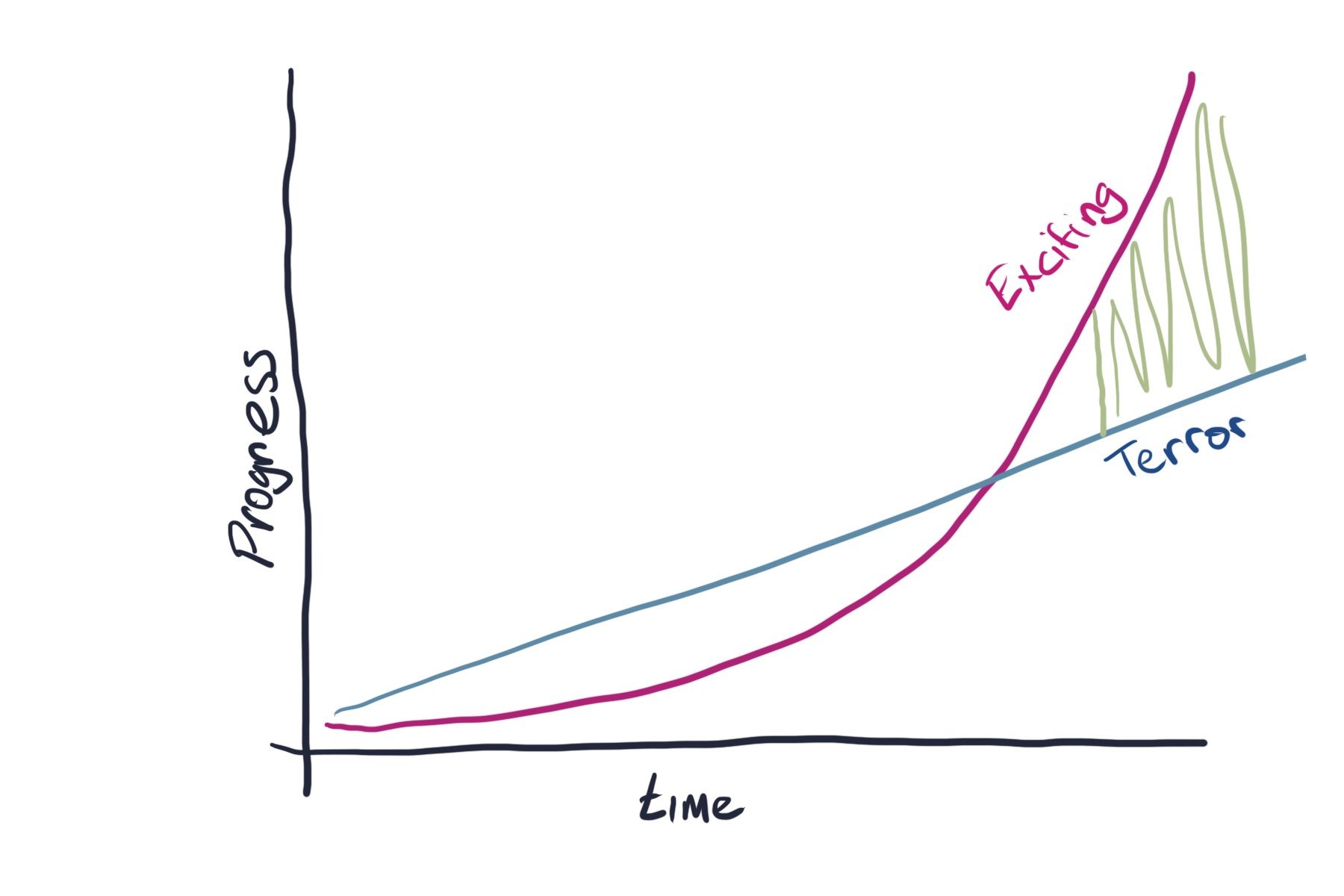We are linear minds in an exponential world
I remember reading about an experiment long ago. Participants were shown a bar. This bar was supposed to represent the numbers 1 to 1,000,000. The researchers asked each participant to mark where 1,000 would appear on the line. Have a go yourself, gut feeling only.
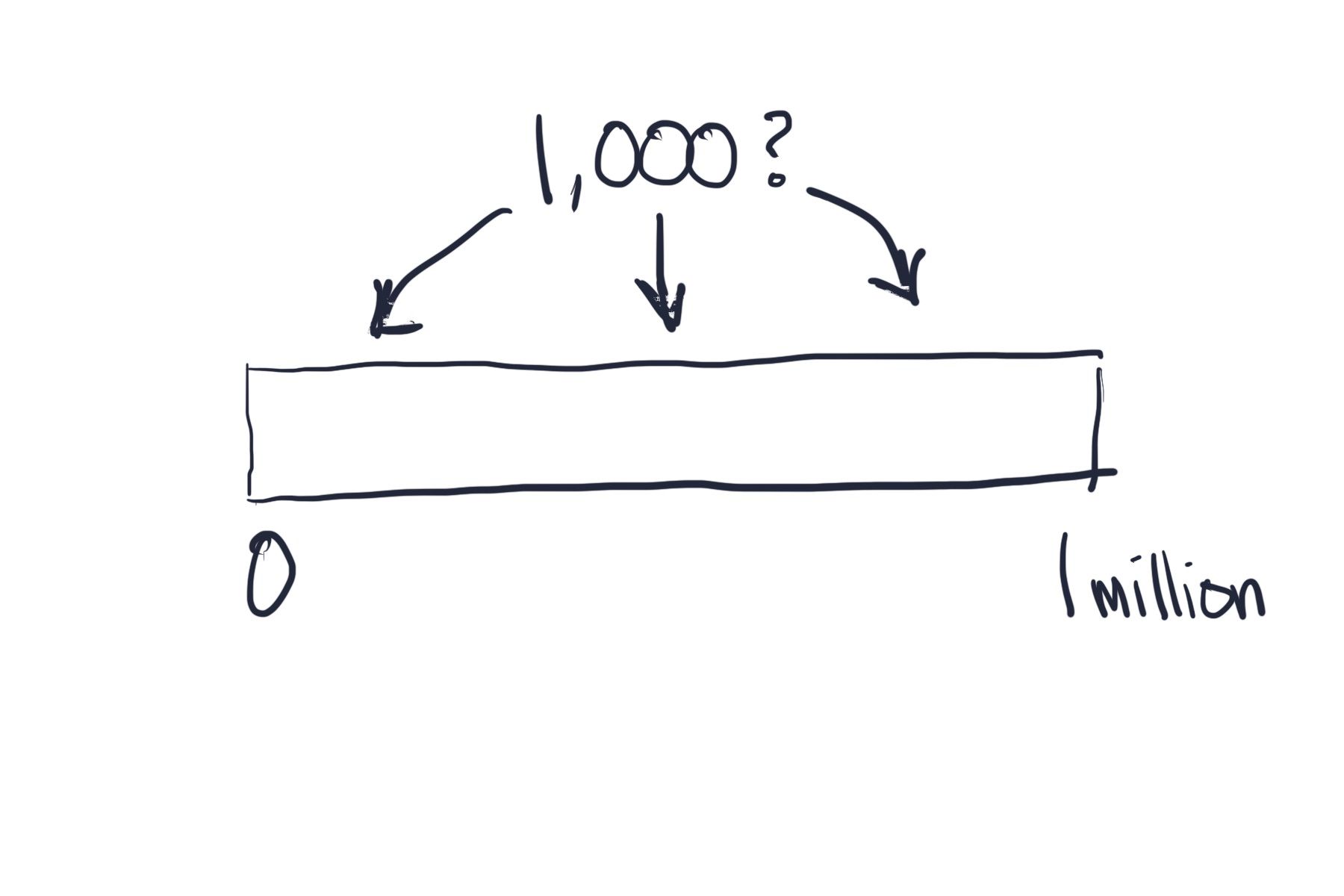
More often than not, participants would mark a line around 10% along the bar. That felt to them sort of where 1,000 would be. If we think about it though, this is a terrible guess. There are a thousand thousands in a million which means the first would be an almost imperceptible shift from the leftmost point on the bar.
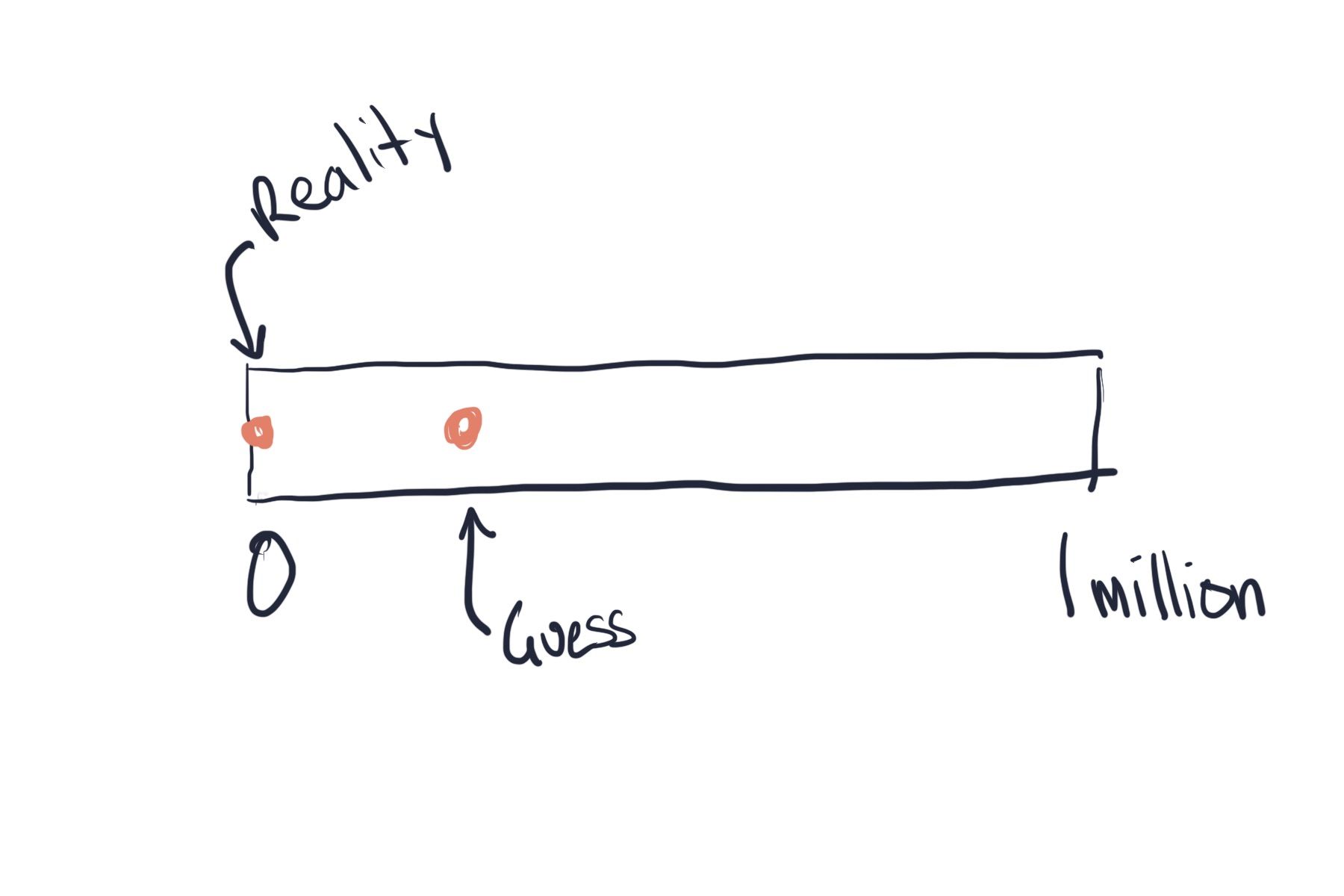
Overall we are not great estimators when the values, or time scale, are immense.
Most human progress to date has been roughly exponential. On a smaller scale, it's bumpy but zoom out to view a single human lifetime, and things look roughly exponential.
To narrow this down, let's just think about technology. Over my lifetime, roughly three decades, technology has advanced in leaps and bounds. Smartphones, broadband internet, AI, mRNA vaccines, and many more technologies were science fiction or early lab work when I was born.
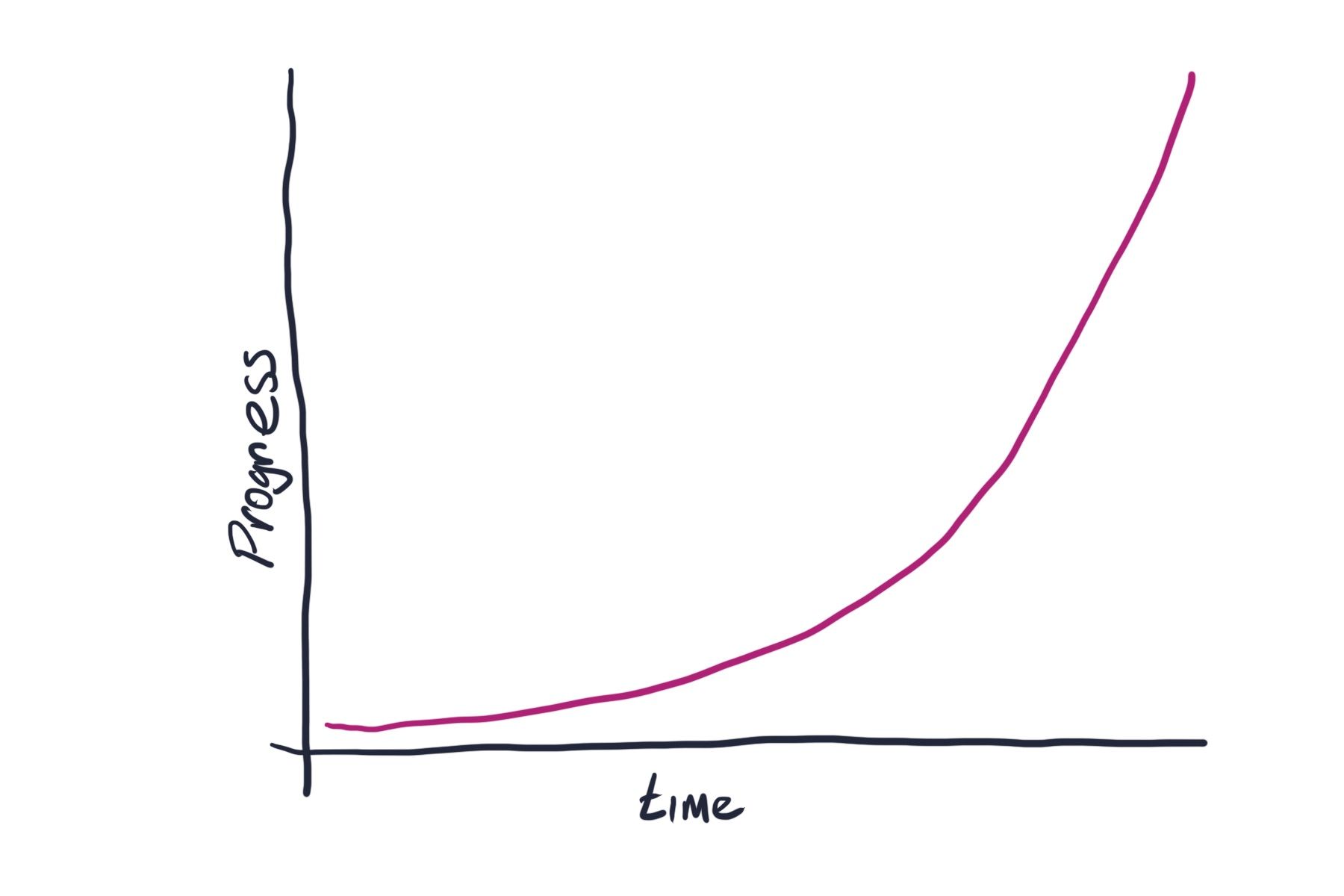
As kids, we learn quickly. Whatever world we are born into becomes second nature pretty fast. Toddlers work out how to use iPads without much instruction because their brains are hard-wired for learning. As we get a little older we start to imagine the future.
Like our number line guessing friends, I think we estimate that one poorly as well.
For the most part, our estimates of the future are linear. We take what we saw happen in the first few years of life and project that forward a few decades. Maybe we sprinkle in a few moonshot innovations like flying cards, but we picture a linearly better future for the most part.
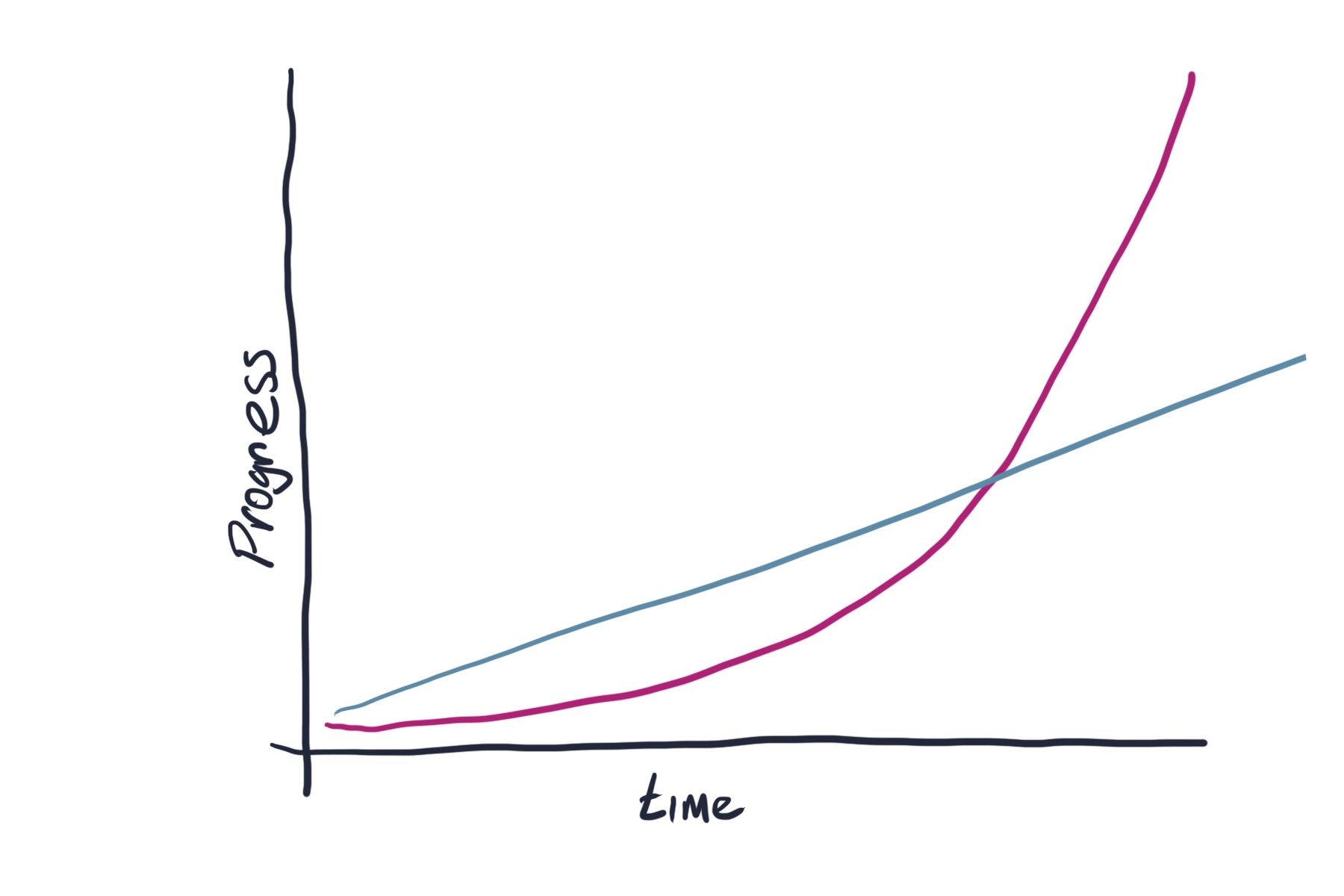
In our teens, our linear estimate sits higher than the exponential truth. We're expecting more of the same and feeling a little let down. We continue to stay on top of whatever is new.
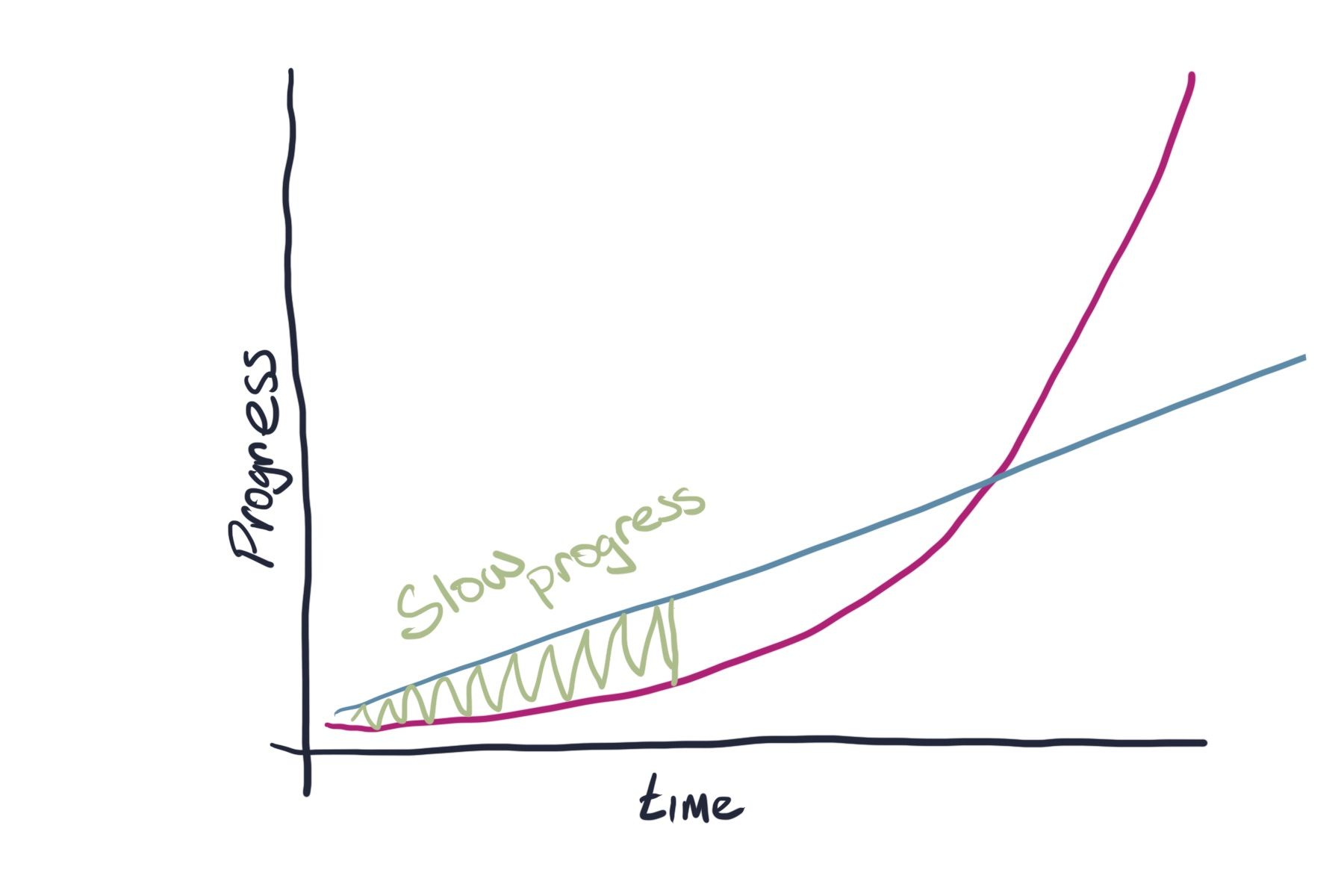
Our twenties arrive, and those lines start to get closer. The future looks more or less like we imagined. TVs got thinning, graphics are better and the internet is a lot faster. We get the world. It is about where we expected it to be at this point.
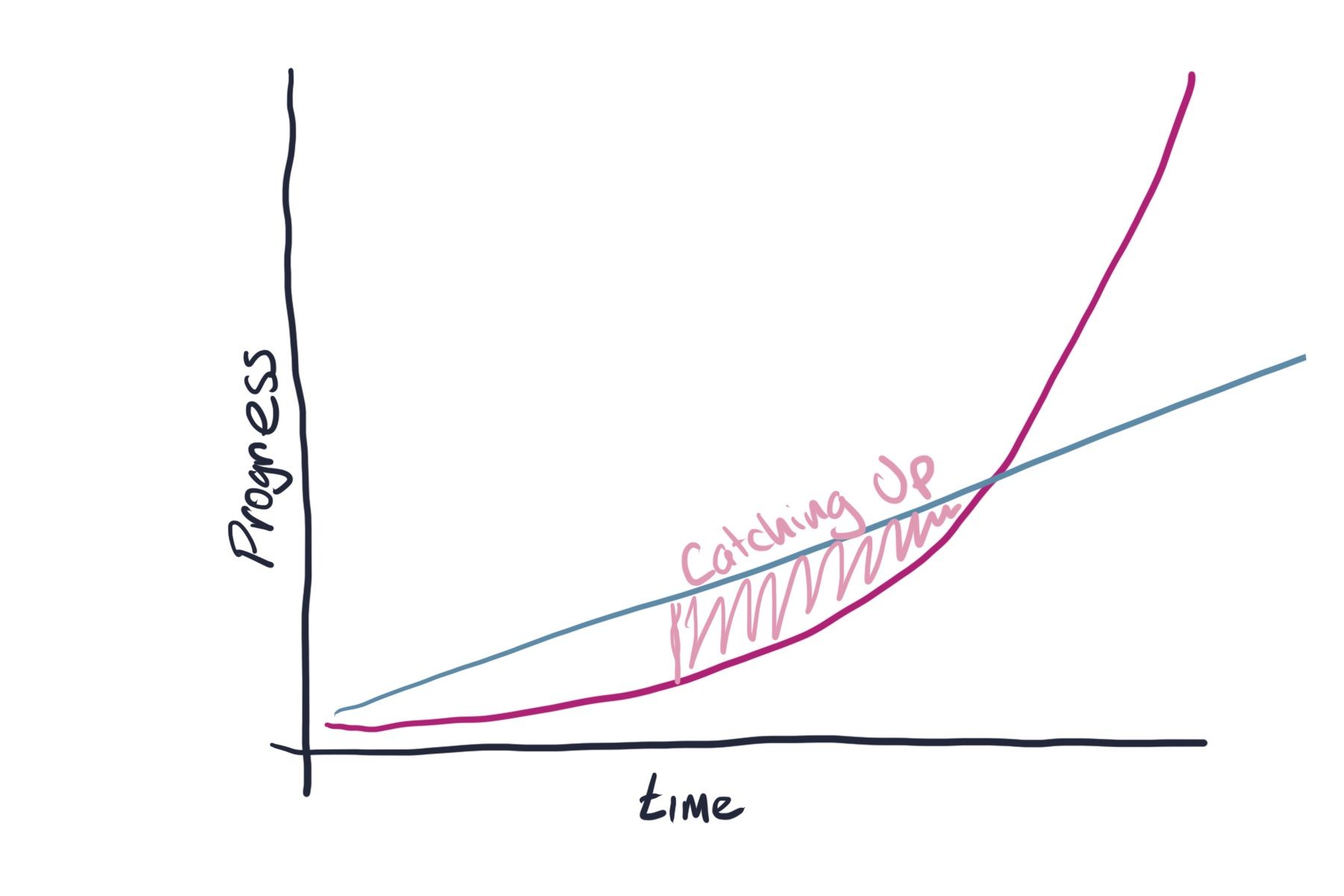
Some time in the next decade (with some individual wiggle room to be sure) those lines cross. That slowly growing exponential climbs above our linear ideas of the future. At first it is a small difference. We're older now and focused, less time to know everything.

As time goes on, that gap widens. For many, it's a bit scary. We knew where things would be, and now we are behind. The world is moving fast, and we hadn't planned enough to keep up with it.
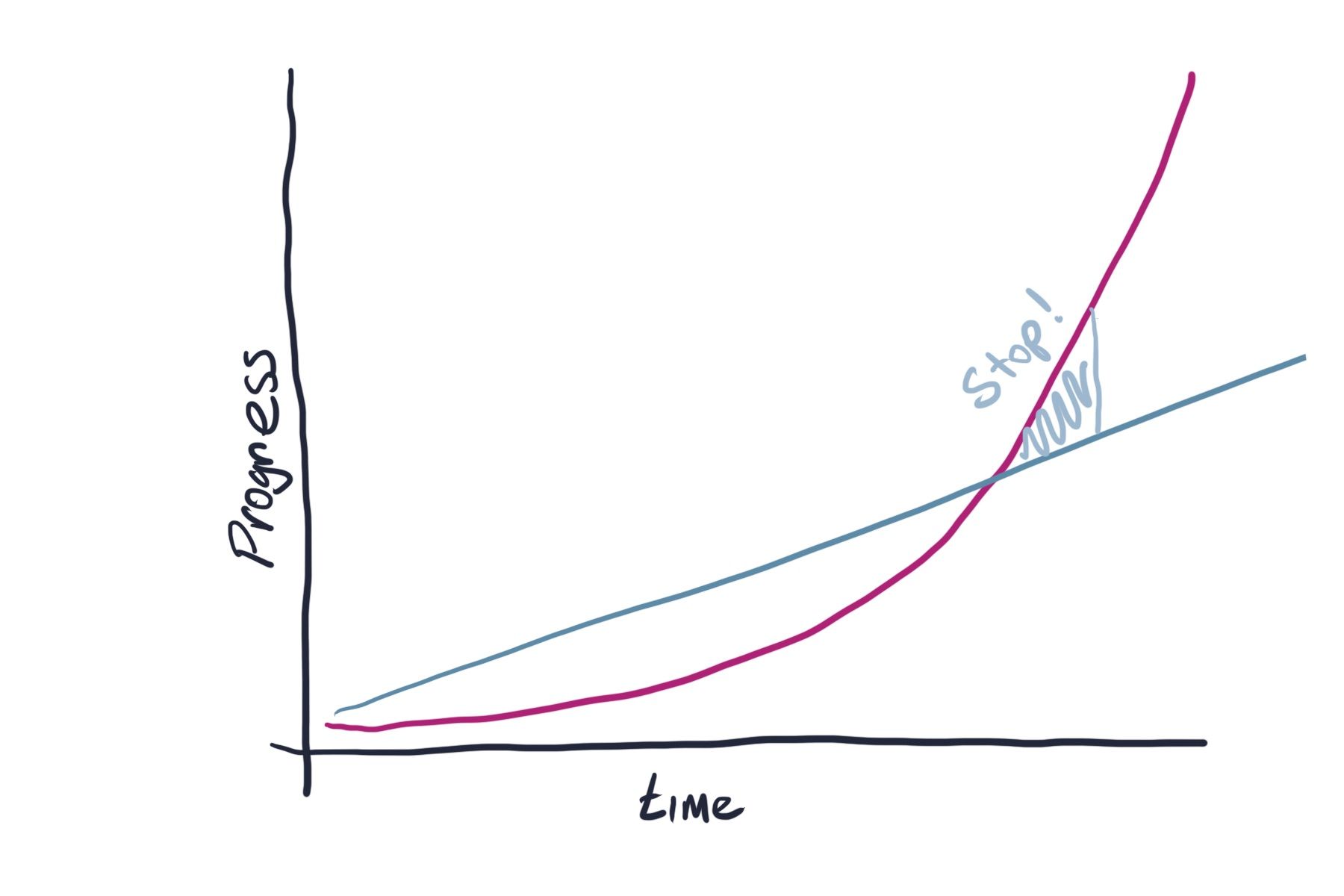
Luckily though, the future will be far more than our ten-year-old selves could have imagined. With all of this, we reach a point with two options. One, we can live in the land of terror. The world is moving too fast for us, and nothing we can do about it. The other, a realisation that we are not great estimators. How we thought the world would change doesn't need to be fixed. We can set our sites on higher goals and realise that we might achieve things we never thought possible another few decades from now.
